The Top 20 Most Peaceful Countries in Asia
Asia, the largest and most diverse continent, is home to a rich, diverse group of nations, some saddled with a lot of conflict and unrest, but each with its unique history culture, and approach to maintaining peace. Thus, from the serene landscapes of Bhutan to the bustling metropolises of Japan, Asia has spectrum of peaceful countries that embody harmony, safety, and stability. In this article, we’ll explore the top 20 most peaceful countries in Asia, shedding light on what makes each of them so tranquil.
1. Bhutan
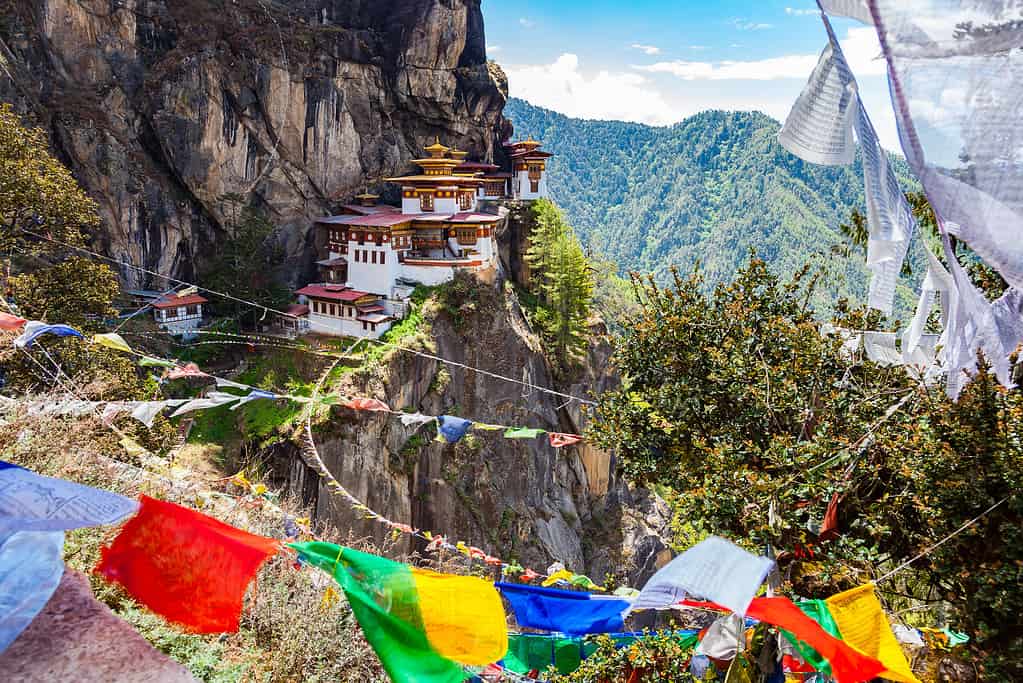
©takepicsforfun/iStock via Getty Images
Also known as the “Land of the Thunder Dragon,” Bhutan is a jewel in the Eastern Himalayas. Bhutan is also the most peaceful country in Asia, thanks to the Buddhist culture and being so isolated from other countries. This mountainous kingdom is not only known for its stunning landscapes but also for its unique philosophy of Gross National Happiness (GNH). Bhutan places well-being at the forefront of its policies and also emphasizes the importance of spiritual, physical, and mental well-being for its citizens. The country’s serene monasteries, like the Paro Taktsang Monastery, are perched dramatically on cliff sides. This only helps to create an atmosphere of spiritual tranquility. Thus, Bhutan’s pristine environment with lush forests and the unspoiled Bhutanese Himalayas, adds to its charm and peace. It also offers opportunities for trekking and wildlife encounters, which add to the peacefulness.
2. Japan
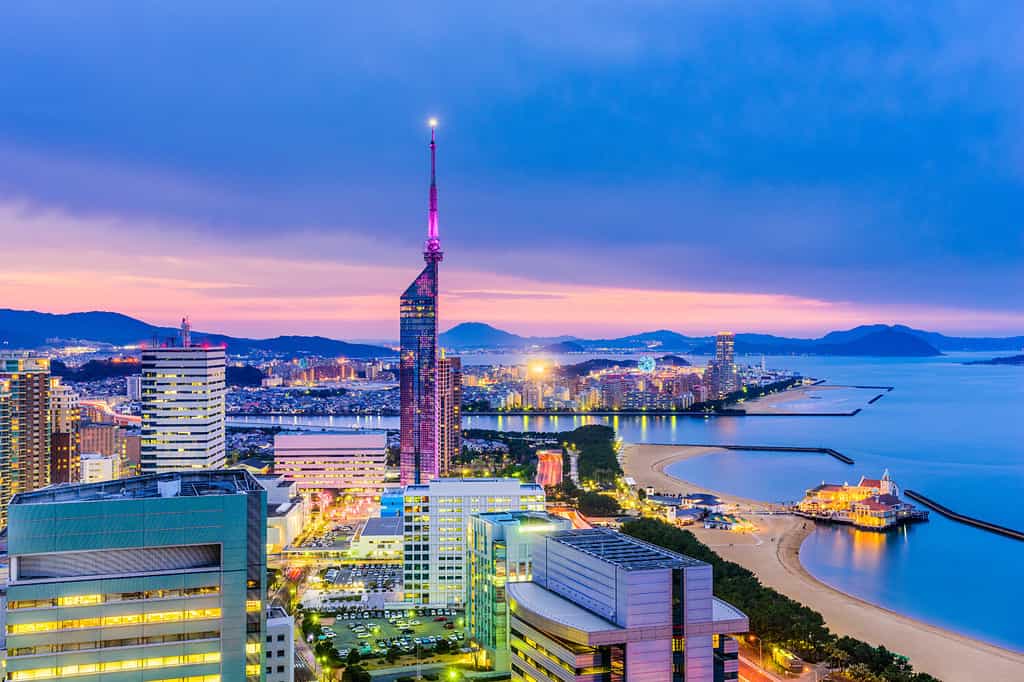
©Sean Pavone/Shutterstock.com
Japan, called the “Land of the Rising Sun,” is also one of the most peaceful and culturally rich countries in Asia. However, it wasn’t always peaceful. Before the second World War, Japan was famous as an imperialist power. But after the atomic bombing in Hiroshima and Nagasaki, its residents realized the true downsides of war. Now, its dedication to peace is deeply rooted in its post-World War II constitution, which renounces the right to wage war. The country’s safety and orderliness also extend to its streets, where crime rates are remarkably low. Beyond the famous bustling cities of Tokyo and Yokohama, Japan has several serene escapes in its traditional temples and gardens. Kyoto, with its Zen gardens and ancient shrines, is a hub of spiritual serenity. Finally, the Japanese concept of “wa” (harmony) permeates daily life, fostering a sense of unity and respect among its citizens.
3. Singapore
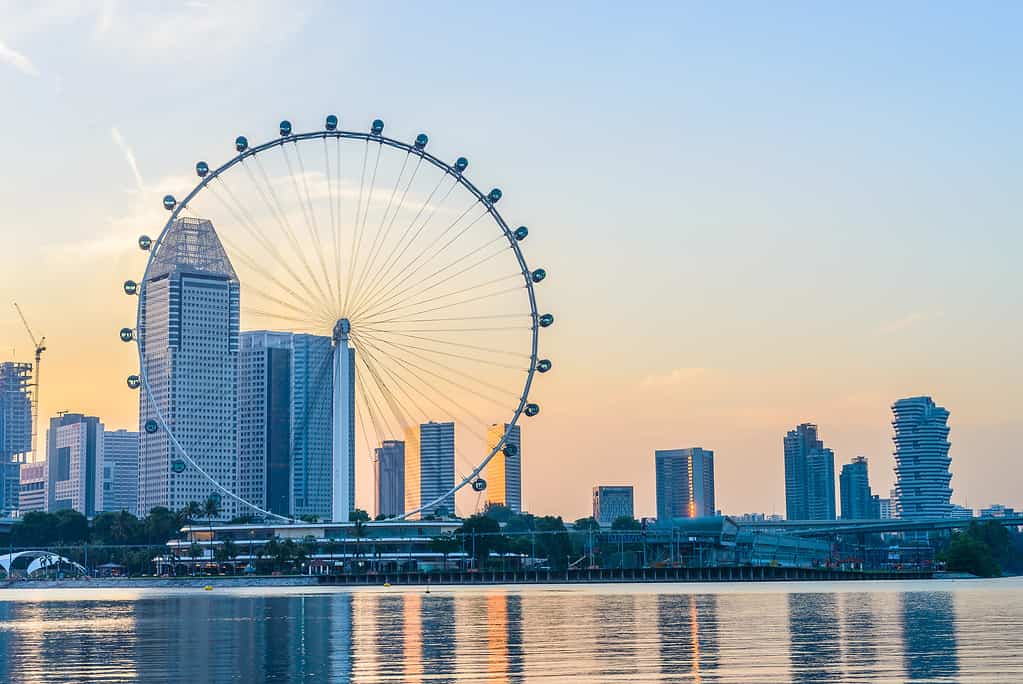
©Lifestyle Travel Photo/Shutterstock.com
Singapore, a small city-state with a big reputation, is known for its cleanliness, efficiency, and low crime rates. But it is also famous for its political peacekeeping. This island nation prioritizes safety and stability, making it one of the safest places to live and visit in Asia. Singapore’s lush green spaces, such as the futuristic Gardens by the Bay, are also tranquil spots for relaxation and reflection. The country celebrates multiculturalism, and its diverse neighborhoods, from Little India to Chinatown, are a small example of different cultures living in harmony.
4. Taiwan
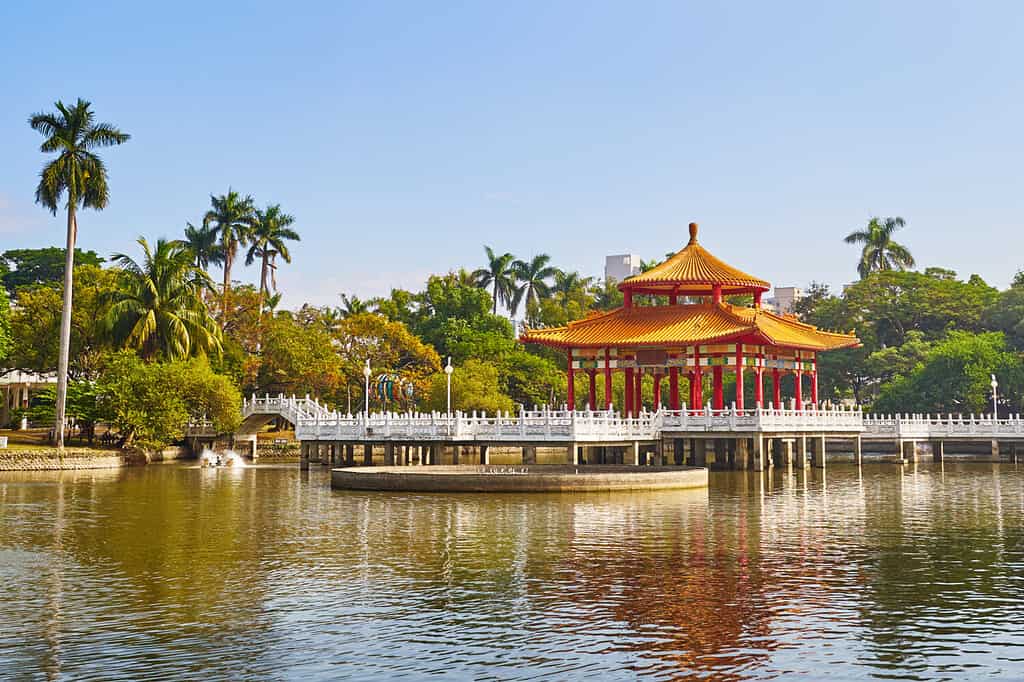
©The HippoZoom/Shutterstock.com
Taiwan, an island nation in East Asia, has a reputation for political stability and rule of law. Despite its complex relationship with mainland China, Taiwan remains a beacon of democracy and peace in the region. Visitors can find inner peace in the country’s serene temples, such as the Chiang Kai-shek Memorial Hall and the Longshan Temple. The natural beauty of Taiwan, including its lush forests and serene lakes, also offers such natural beauty that you can feel all your cares melt away. Finally, the Taroko Gorge, with its towering marble cliffs, is a beautiful testament to Taiwan’s stunning landscapes.
5. South Korea
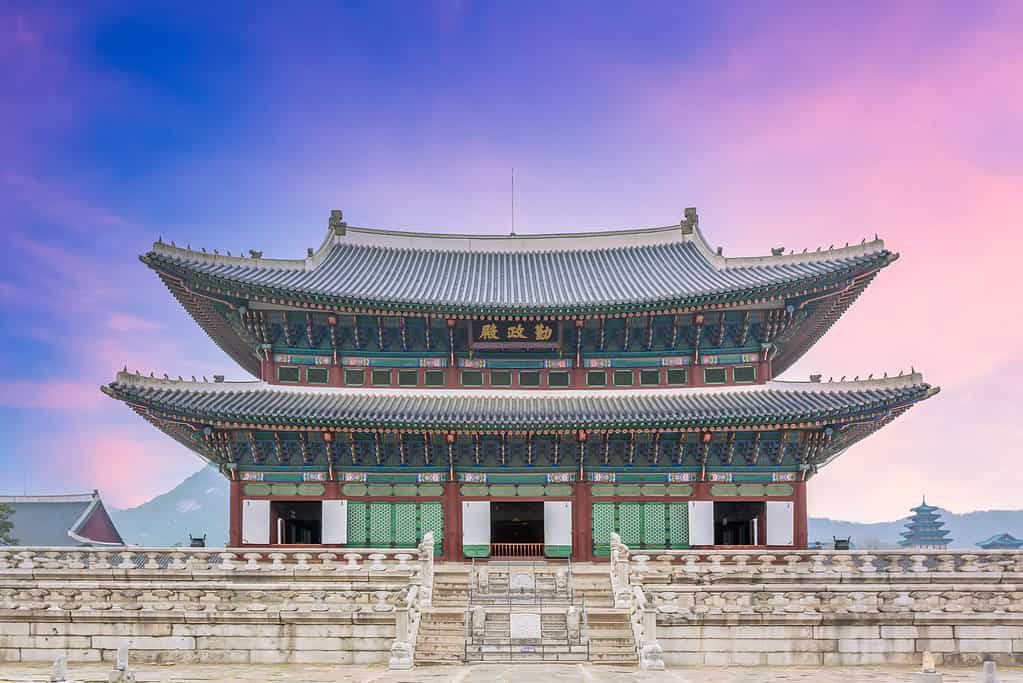
©AvigatorPhotographer/iStock via Getty Images
South Korea, located on the Korean Peninsula, has made significant strides in maintaining peace and stability despite the challenges posed by its northern neighbor. The country’s dedication to innovation and exemplary education has also propelled it to global prominence. While the bustling streets of Seoul are a symbol of modernity, South Korea still retains a deep reverence for tradition. The ancient temples of Gyeongju are surrounded by serene landscapes and centuries of history. They offer a glimpse into the country’s cultural heritage and how much the country cares about culture and peace. Thus, South Korea’s commitment to peace and prosperity shines through its dynamic society and rich history.
6. Malaysia
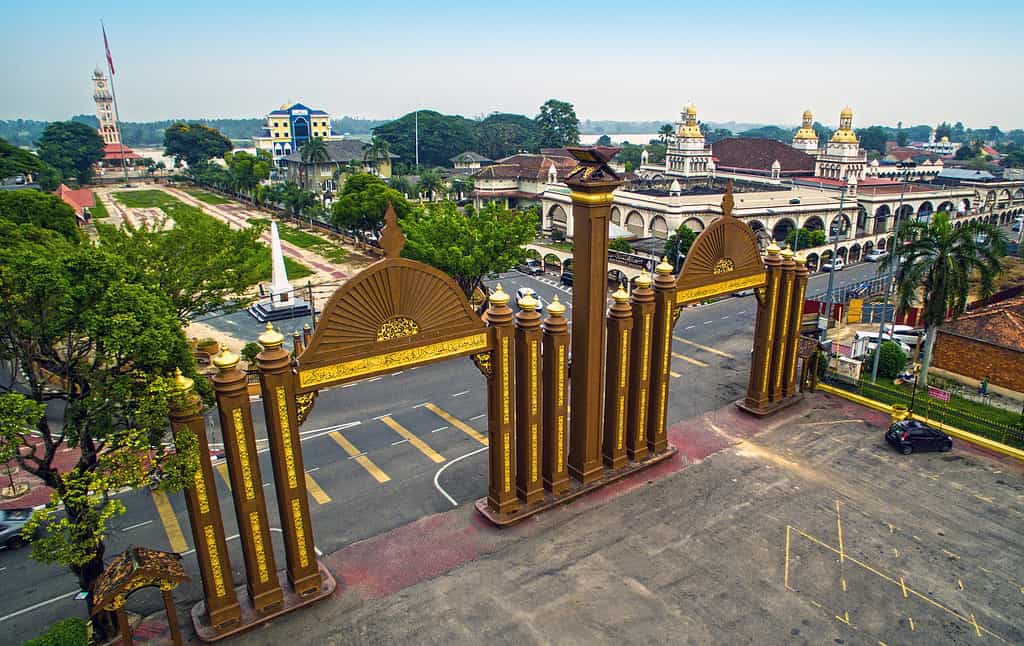
©RAVINDRAN JOHN SMITH/iStock via Getty Images
Malaysia, a Southeast Asian nation known for its cultural diversity and lush landscapes, has an atmosphere of harmony and unity. Its commitment to multiculturalism is evident in the coexistence of various ethnic and religious groups. This includes Malays, Chinese, Indians, and native indigenous communities. Malaysia’s natural beauty, from the dense rainforests of Borneo to the pristine beaches of Langkawi, invites travelers to experience tranquility in its most unspoiled form. The country’s cuisine, a fusion of flavors from different cultures, also adds to its allure.
7. Mongolia
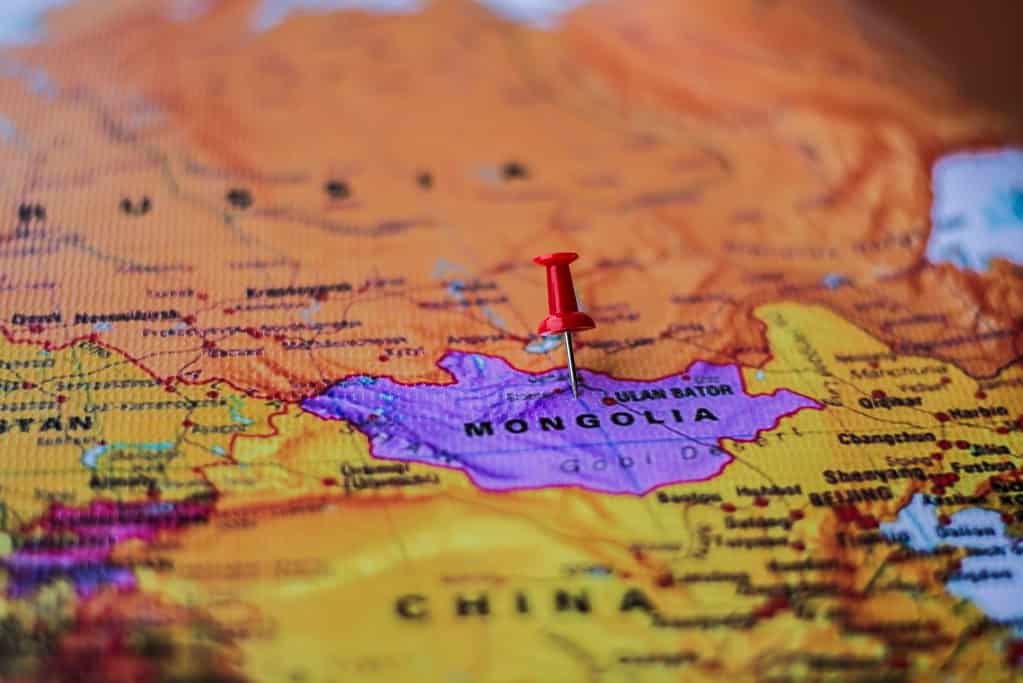
©Johnstocker Prodution/Shutterstock.com
Called the “Land of the Eternal Blue Sky,” Mongolia is a vast and sparsely populated country where nomadic traditions have endured for centuries. There is hardly any political conflict in the country. The serene landscapes of Mongolia, with its boundless steppes and rugged mountains, create an atmosphere of peace and solitude. Visitors can immerse themselves in the nomadic way of life by staying in traditional ger camps, experiencing the hospitality of Mongolian herders and exploring the expansive countryside on horseback. Thus, Mongolia’s commitment to preserving its nomadic heritage and pristine environment creates its political peace.
8. Laos
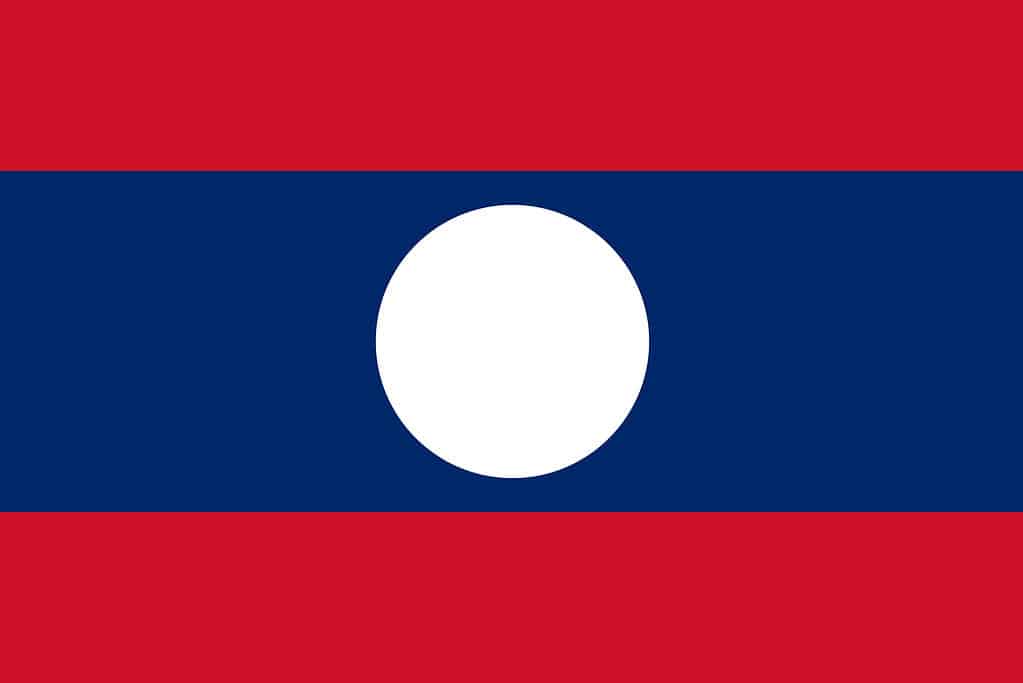
©iStock.com/Maksym Kapliuk
Laos, known as the “Land of a Million Elephants,” embodies a slower pace of life, where time seems to stand still. The country’s Buddhist temples, like the golden Pha That Luang in Vientiane, are spiritual and serene. The Mekong River meanders through lush landscapes and creates peaceful retreats for travelers who seek tranquility. Thus, Laos’ commitment to sustainable tourism and environmental conservation ensures that its pristine beauty and consequent peace remains untouched.
9. Vietnam

©Hien Phung Thu/Shutterstock.com
Vietnam, a country with a turbulent history, has turned into a land of peace and tranquility. Its stunning coastline, from the tranquil waters of Halong Bay to the serene beaches of Phu Quoc, invites travelers to unwind in idyllic settings. Vietnam’s rich history and vibrant culture are also on display in its ancient temples, bustling markets, and lush rice terraces. Thus, the country’s commitment to preserving its natural environment and cultural heritage creates an atmosphere of harmony.
10. Thailand
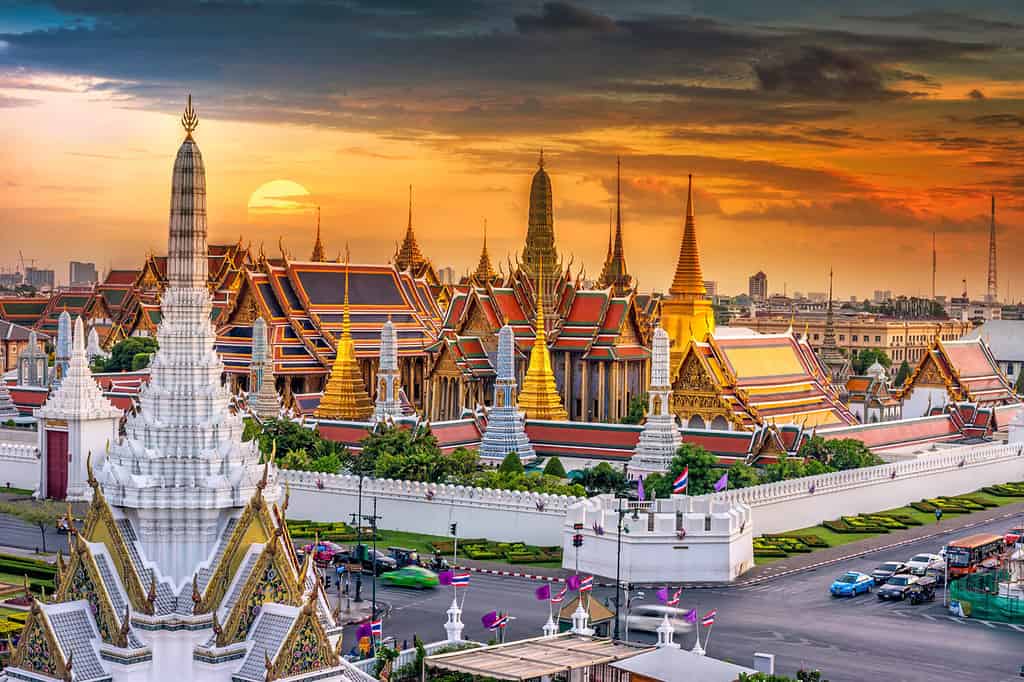
©Travel mania/Shutterstock.com
Thailand, the “Land of Smiles,” has an atmosphere of warmth and hospitality. The country’s Buddhist temples, including the revered Wat Pho and the picturesque Wat Arun, offer a way to be spiritual and find inner peace. As we know, inner peace translates to outer peace, which is true for its citizens. Thailand’s world-known beaches, such as those in Krabi and Phuket, are relaxing. Finally, the country’s cuisine, known for its bold flavors and aromatic spices, adds to the sensory experience of Thailand so you can just be yourself.
11. Nepal
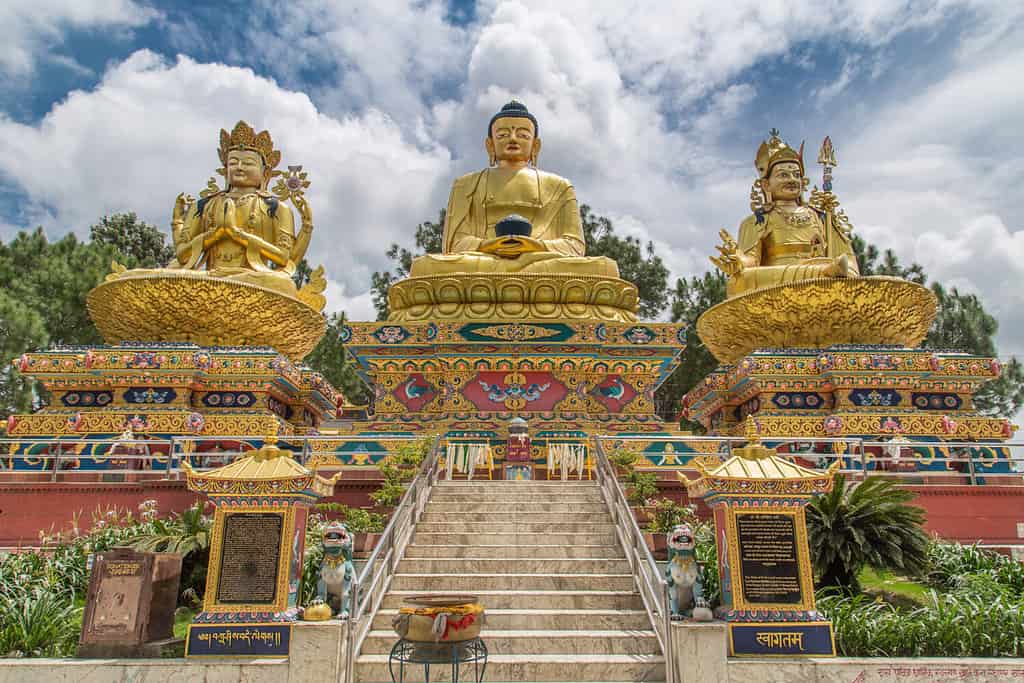
©Alex. Shevchenko/Shutterstock.com
Nepal, which lies in the Himalayas, is a land of spirituality and natural beauty. The country’s towering peaks, including Mount Everest, make one realize how small they are in the bigger picture of the world. Visitors can also find inner peace in the tranquil monasteries of Kathmandu Valley, where prayer flags flutter in the mountain breeze. The serene landscapes of Pokhara, with its tranquil lakes and lush forests, are also great opportunities to meditate and rejuvenate. Nepal follows Buddhist cultures and Hinduism, making its residents very peaceful.
12. Indonesia
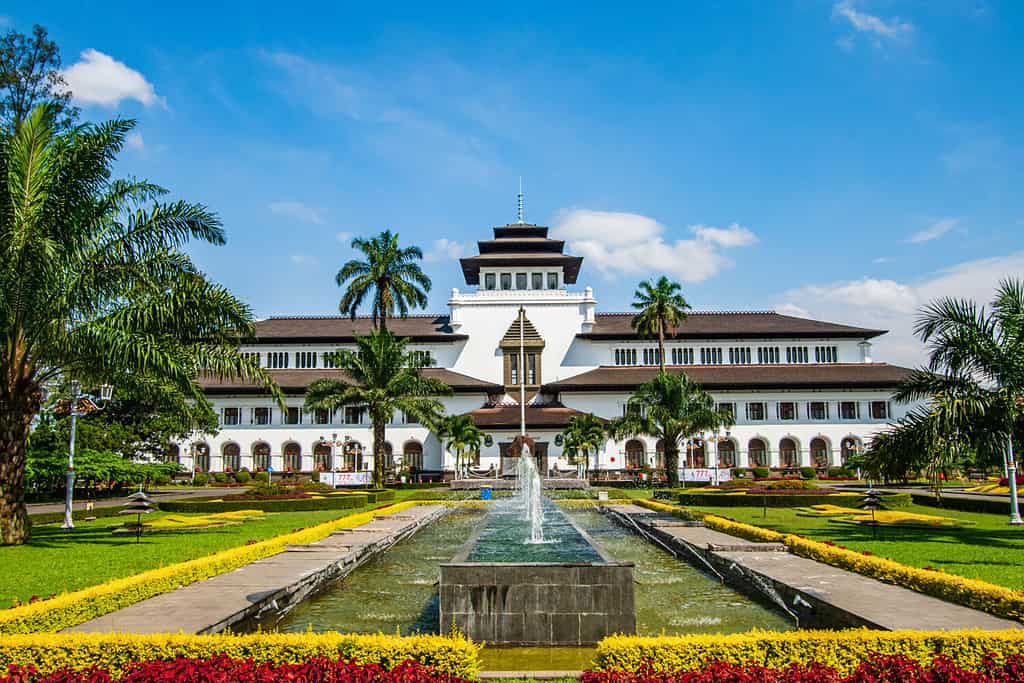
©Abah Baratawiria/Shutterstock.com
Indonesia has a vast archipelago of over 17,000 islands. This means the country offers a diverse range of experiences. Bali, which has often been called the “Island of the Gods,” is known for its rice terraces, spiritual retreats and serene beaches. The island’s artistic traditions and Balinese culture create an atmosphere of tranquility, especially due to the slower pace of life. Finally, Indonesia’s commitment to preserving its unique biodiversity, from the coral reefs of Raja Ampat to the rainforests of Sumatra, reflects its dedication to environmental conservation.
13. Philippines
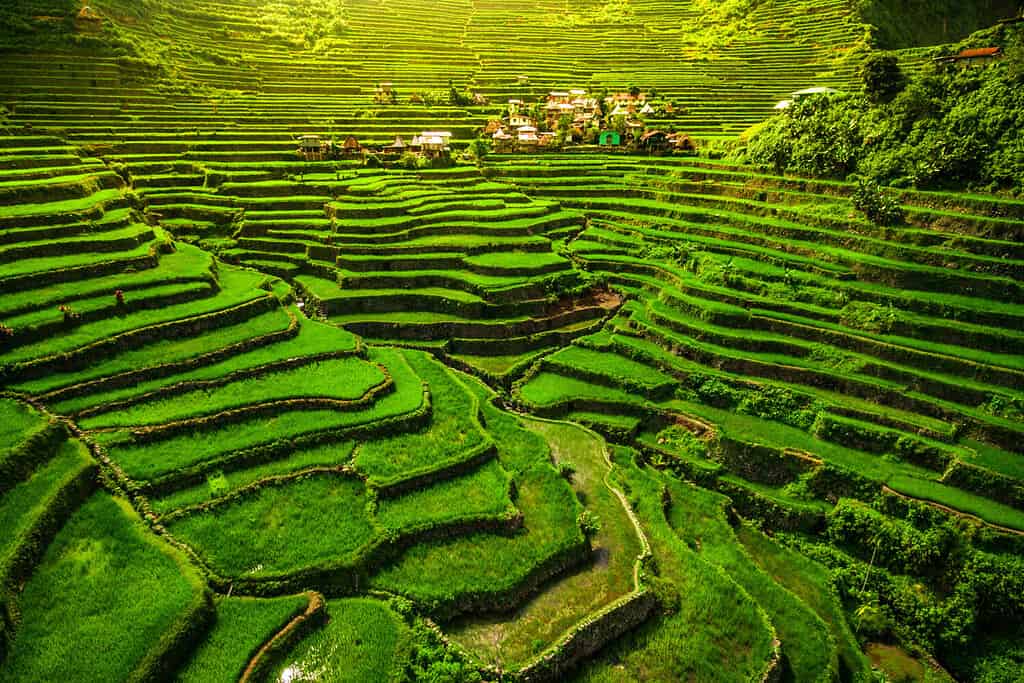
©R.M. Nunes/Shutterstock.com
The Philippines, an archipelago of over 7,000 islands, has so many picturesque landscapes and friendly locals. The presence of coral reefs, such as those in Palawan, only provide residents and visitors an opportunity for underwater exploration and serenity. Furthermore, the historic churches of Manila, like the San Agustin Church, give cultural serenity to the country. Finally, the laid-back beaches of Boracay and Palawan’s natural beauty create diverse experiences that can only make one feel completely at peace.
14. Sri Lanka

©iStock.com/Max Zolotukhin
Sri Lanka is an island nation in South Asia. Like the other countries on this list, it is also a land of rich history and natural beauty. The ancient city of Anuradhapura with its sacred bodhi tree creates an atmosphere of tranquility and spiritual significance. Furthermore, the country’s lush tea plantations in the hill country create a serene escape for those seeking respite as well as offer them a chance to peacefully drink tea while enjoying nature. Thus, Sri Lanka’s commitment to preserving its cultural heritage as well as its natural landscapes ensures a sense of harmony with the past and nature.
15. Cambodia
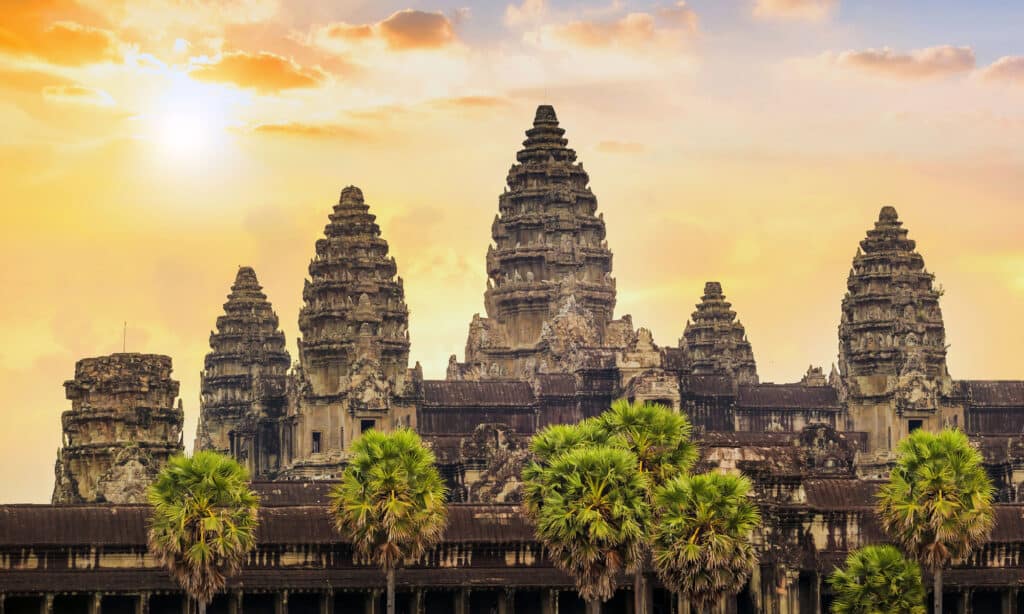
©iStock.com/f11photo
Cambodia, located in Southeast Asia, is a land of ancient beauty and resilience. Even though it faced a terrible travesty after the Khmer Rouge took over the country, it managed to use that as a lesson towards being peaceful in the present. The majestic Angkor Wat temple complex, with its intricate carvings and sprawling ruins, is a great place to engage in exploration and reflection. The tranquil waters of Tonle Sap Lake, Southeast Asia’s largest freshwater lake, and the serene landscapes of Battambang also provide similar opportunities for peaceful encounters with nature and culture.
16. Armenia
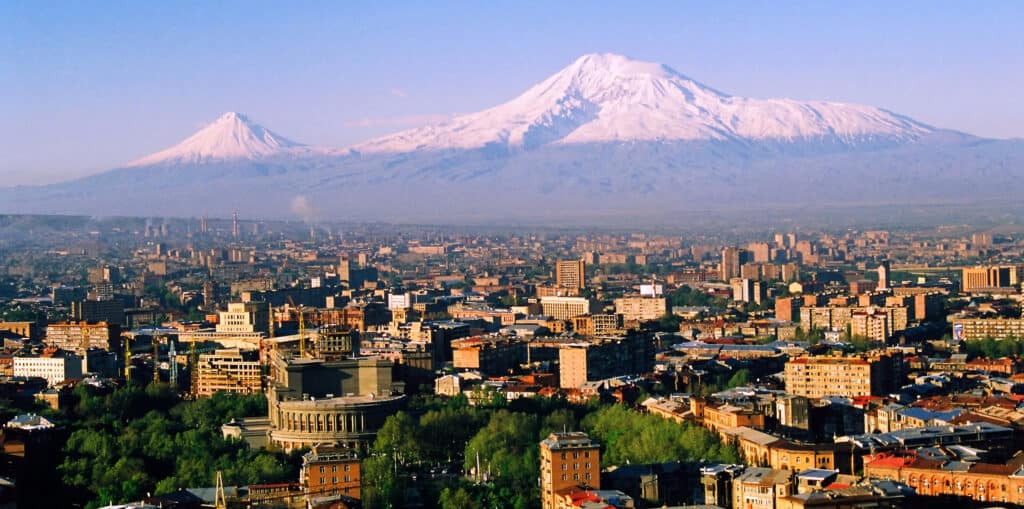
©iStock.com/marlenka
Armenia, a landlocked country in the South Caucasus, is known for its rich cultural heritage and stunning landscapes. Despite the Armenian Genocide, which resulted in the death of millions of Armenians, the country has found a way to create peace in the present. The ancient monasteries of Geghard and Noravank lie within rocky landscapes. Here, they can provide a glimpse into Armenia’s history through a serene lens. Lake Sevan, one of the largest freshwater high-altitude lakes in the world, is also a spot where you can find a peaceful retreat amidst serene shores and mountain vistas. Thus, Armenia’s commitment to preserving its traditions and natural beauty is one of the major reasons for its current peace.
17. Kyrgyzstan
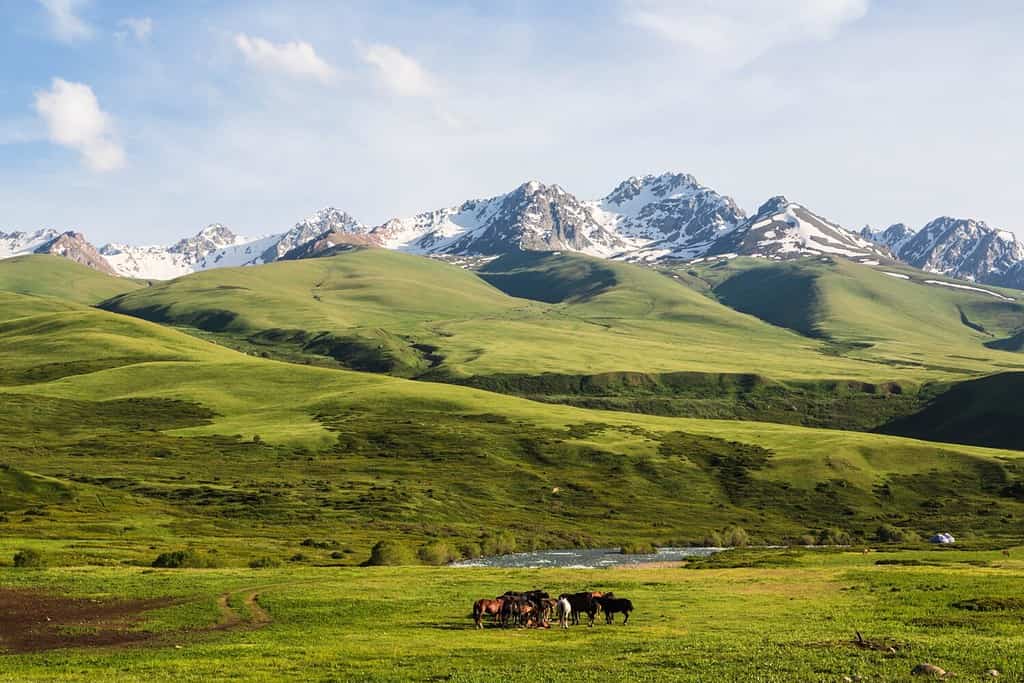
©Nastya Smirnova RF/Shutterstock.com
Kyrgyzstan, a Central Asian country known for its untouched mountain landscapes, is a place that encapsulates serenity and celebrates nomadic traditions. The serene shores of Lake Issyk-Kul are surrounded by snow-capped peaks, and so they invite visitors to engage in relaxation and introspection. Visitors can experience the hospitality of yurt stays in the countryside, where nomadic herders have preserved their way of life for generations. This lack of political conflict and Kyrgyzstan’s dedication to preserving its natural environment and nomadic culture are the reasons the country is so tranquil and peaceful.
18. Jordan
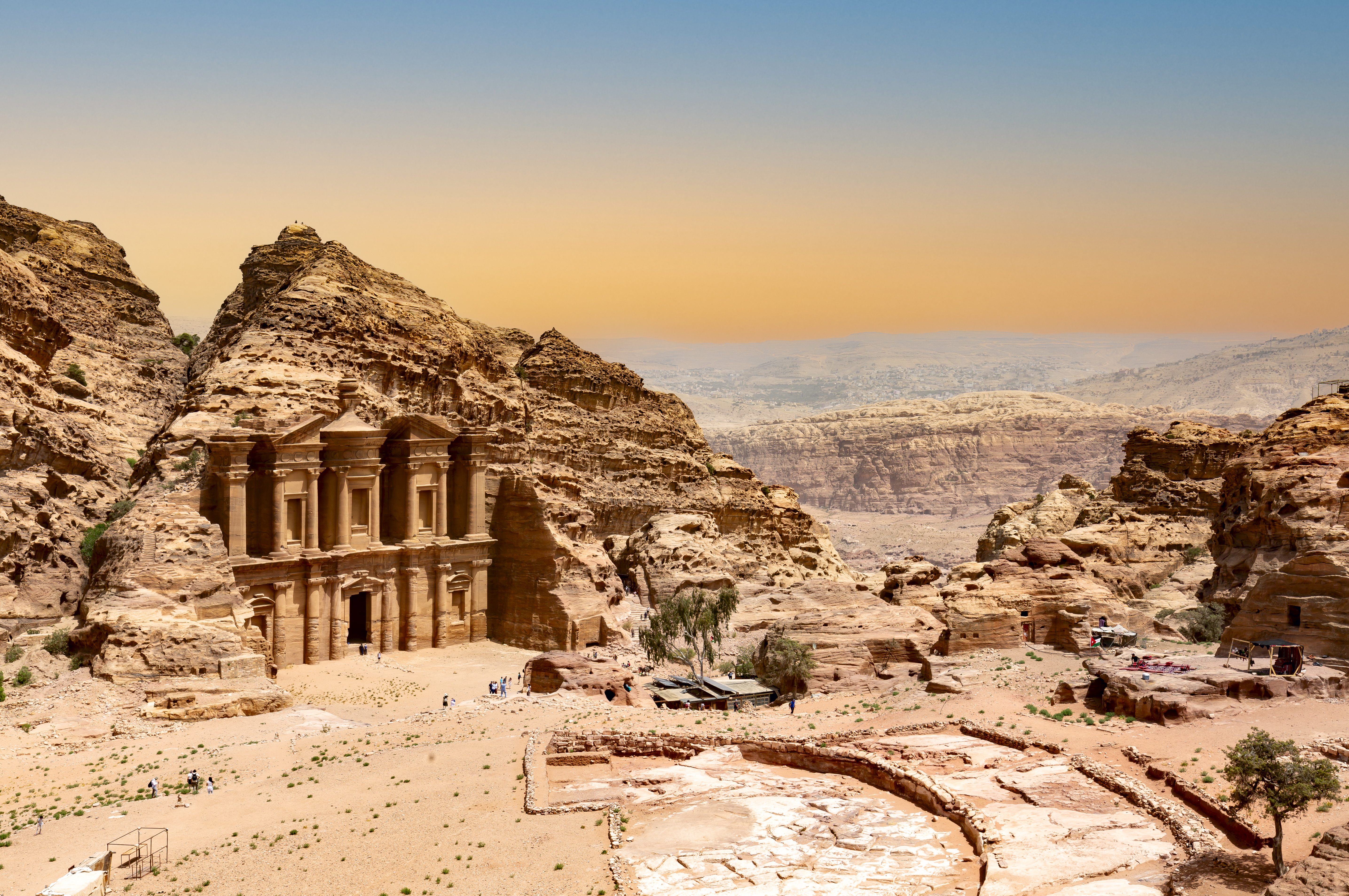
©minoandriani/iStock via Getty Images
Jordan, a Middle Eastern country, is a blend of historical richness and tranquility. This is what makes it one of the most peaceful countries in the world, even in the midst of one of the most conflict-prone regions in the world. The rose-red city of Petra, an archaeological wonder, is a serene backdrop for exploration. The peaceful waters of the Dead Sea, known for their buoyancy and therapeutic properties, also offer a peaceful experience as you float over the sea. Finally, the desert landscapes of Wadi Rum, with its towering sandstone formations and vast open spaces, are a great space for reflection, making Jordan a great place to relax.
19. Oman
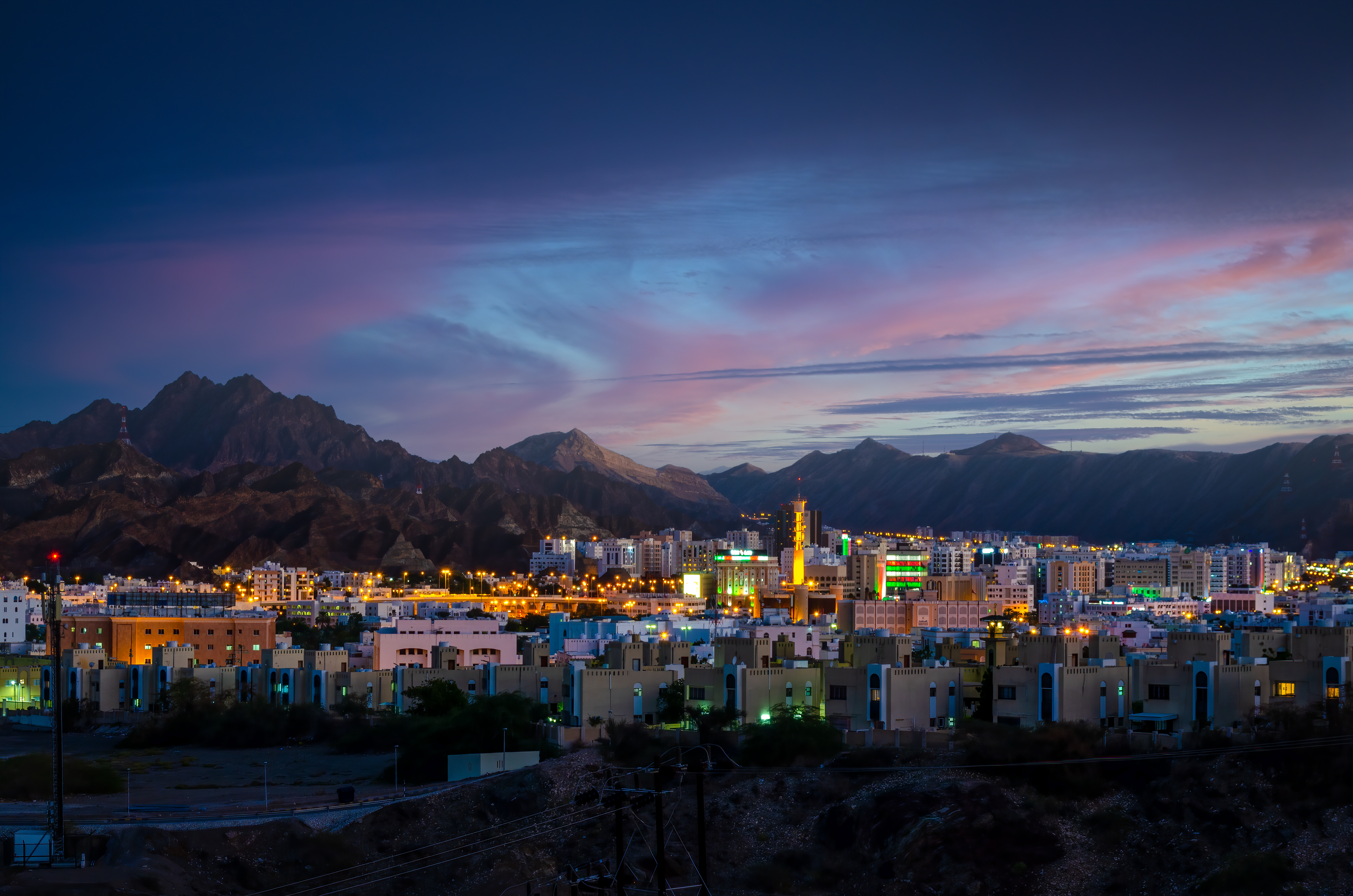
©Reji Ittiachan/iStock via Getty Images
Oman, located on the southeastern coast of the Arabian Peninsula, combines desert landscapes with coastal beauty. The historic forts and souks of Muscat, the capital city, are a great opportunity to delve into Oman’s rich history. Even though it lies in one of the most conflict-prone regions in the world, it has still managed to remain peaceful. The serene beaches of Salalah, surrounded by lush greenery and frankincense trees, are a great place to relax when in the country. Thus, Oman’s commitment to preserving its cultural heritage and natural beauty ensures that the country maintains its peace and harmony.
20. Qatar

©Leonid Andronov/iStock via Getty Images
Qatar, a nation on the northeastern coast of the Arabian Peninsula, combines modernity with cultural heritage. Like some of the other countries on this list, it lies in the Middle East, which is one of the most conflict prone regions in the world. Yet, Qatar is not only a hub for academics and research, it is also a peaceful region. The Museum of Islamic Art in Doha, designed by architect I. M. Pei, is one of its most famous spots for peaceful sightseeing. Thus, Qatar’s commitment to arts, culture and economic development creates a peaceful form of urban sophistication.
Summary Table for the 20 Most Peaceful Countries in Asia
Here is a summary table of the 20 most peaceful countries in Asia and their key attributes:
| Country | Key Attributes |
|---|---|
| Bhutan | Buddhist culture, Gross National Happiness, stunning landscapes |
| Japan | Post-WWII peace, low crime rates, traditional temples and gardens |
| Singapore | Political peacekeeping, safety, multiculturalism, lush green spaces |
| Taiwan | Political stability, serene temples, natural beauty |
| South Korea | Dedication to peace, cultural heritage, ancient temples |
| Malaysia | Cultural diversity, natural beauty, cuisine |
| Mongolia | Nomadic traditions, serene landscapes, political peace |
| Laos | Buddhist temples, Mekong River, sustainable tourism |
| Vietnam | Coastal beauty, rich history, cultural preservation |
| Thailand | “Land of Smiles,” Buddhist temples, pristine beaches, bold cuisine |
| Nepal | Himalayan spirituality, serene monasteries, natural beauty |
| Indonesia | Bali’s tranquility, environmental conservation, cultural traditions |
| Philippines | Island landscapes, coral reefs, historic churches |
| Sri Lanka | Rich history, lush tea plantations, cultural preservation |
| Cambodia | Ancient beauty, Angkor Wat, serene landscapes |
| Armenia | Cultural heritage, ancient monasteries, Lake Sevan |
| Kyrgyzstan | Pristine mountain landscapes, nomadic traditions, Lake Issyk-Kul |
| Jordan | Historical richness, Petra, Dead Sea, Wadi Rum |
| Oman | Desert and coastal beauty, historic forts, serene beaches |
| Qatar | Modernity with cultural heritage, Museum of Islamic Art, tranquil waters |









